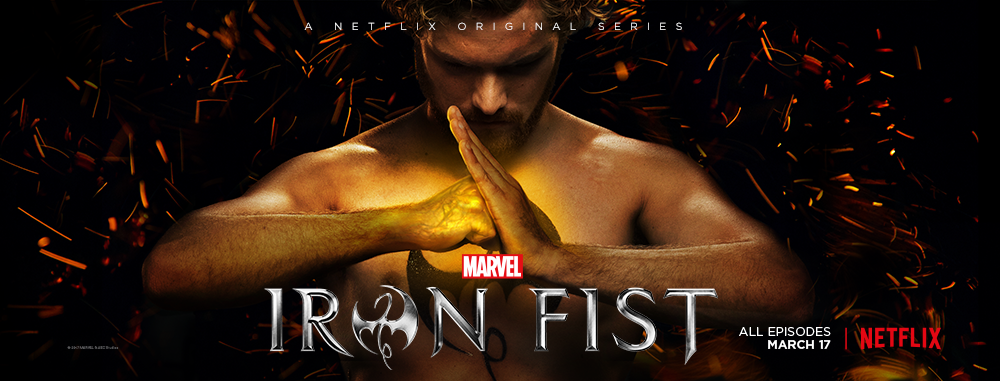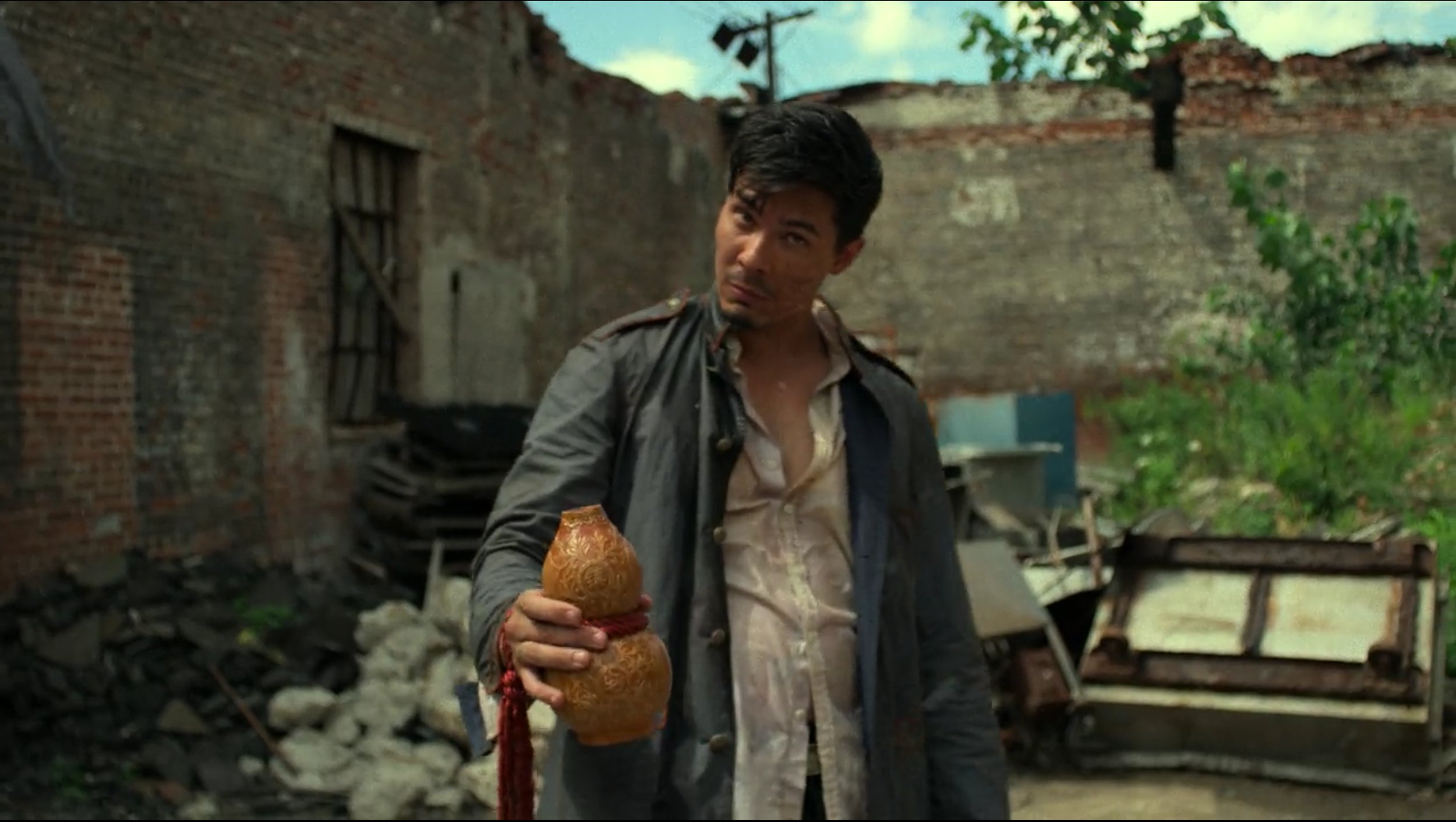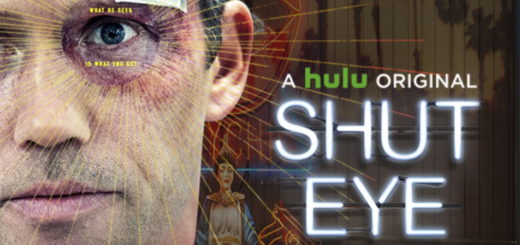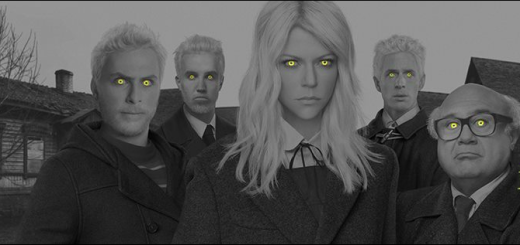MARVEL’S IRON FIST Season One Review

Everything about IRON FIST makes me sad. Watching the first season on Netflix has been drudgery and turmoil; every moment has me wishing that things could have gone some other, better way. With a poorly cast lead and characters lacking in depth and independence, IRON FIST leaves me wanting and hoping for much more. The show relies on a comic book concept created by a white man, which features a worn-out narrative about a rich white guy somehow learning ancient, mystical martial arts and gaining superpowers. At 10 years old, Danny Rand (Finn Jones) survived a plane crash that killed his parents and then disappeared for 15 years. He was rescued by monks from the fictional region of K’un-Lun and put through vigorous training, until he somehow became the legendary Iron Fist, protector of K’un-Lun and sworn enemy of The Hand.
Sure, no superhero story these days is going to be original—but it’s difficult to write a story as deeply steeped in cliche and borrowed concepts as IRON FIST. At best, it’s lightly inspired by Asian culture and other comic book stories, and at worst, it commits cultural appropriation and possible plagiarism. In the beginning of the series, IRON FIST attempts intrigue by leaving a lot of details in the characters’ past and putting us right alongside Danny as we both try to discover what has happened during his 15 year absence from civilization. The mystery is a smart decision, especially considering the countless spoon-fed superhero origin stories we’re forced to consume, but only temporarily. The problem is that the answers to all of the mysterious questions are boring and predictable. Where did he come from and what’s he been doing? No, it’s not anything new or interesting, just the same quasi-plagiaristic tired narrative: he studied martial arts in a fantastical Asian land. Unfortunately, this cute “mysterious backstory” gimmick is not enough to save the show from the reaches of painfully cringe-worthy dialogue and even worse performances, especially once the mystery is over.
In episode eight, we get a glimpse into how things could have been through Lewis Tan. In the show, Tan plays Zhou Cheng, a henchman of the dastardly organization known as The Hand, who fights with Danny using a complicated and effective form of martial arts known as zui quan, or drunken fist. In his short and relatively pointless scene, Tan proves himself to be charming, handsome, funny, talented, and strong, and his presence briefly revitalizes the show. But how is this any proof of the lost potential of IRON FIST? Because Lewis Tan originally auditioned to play Danny.

You know it’s bad when you’re rooting for the villain to beat up the star
My strife over the casting of Finn Jones is not completely over his race, despite the ongoing controversy. Yes, it’s an outdated and overused trope for a white man to magically discover the “east” and learn martial arts (ring any bells, Batman?). But I’m not sure that changing the race of the main character would have made a large difference, although it’s very possible and it’s what Tan himself believes. In his own words, he feels that bringing the perspective of an Asian-American to the role would have been something new and different, especially since his race has allowed him to connect to the character in a unique way: “I understand those frustrations of being an outsider. Like Danny’s character. I understand him very well.” Given Netflix’s recent, more progressive successes (even other Marvel shows have found success with non-white male stars—Luke Cage and Jessica Jones), it’s confounding as to why they would pass up on the attractive, muscular, actual martial arts star for a pasty white boy with dad-bod potential. Furthermore, according to a recent USC study on diversity in the entertainment industry, Asians represent just 5.1 percent of speaking or named characters across film, television, and digital series. With a story and concept so rooted in Asian culture and background, doesn’t it just make sense to cast Asian actors as well? Especially when someone as perfect for the role as Lewis Tan waltzes in to audition.
One shining light of IRON FIST is it’s romantic lead: Colleen Wing (Jessica Henwick). She starts out as a badass, independent tough girl with no interest in Danny and a healthy amount of concern about his hygiene, as he begins the show homeless and barefoot. However, as the show progresses (or should I say devolves) she becomes whiny, worrisome, and possessive over Danny, even facing tension with the other women in Danny’s life.

Our nearly feminist Asian lead, Colleen Wing
I know that feminism doesn’t prevail in all modern television shows, but at this point in time it’s difficult to find a show on air this blaringly sexist, especially when considering Finn Jones’s own thoughts on the issue:
Oh boy. First of all, these things are simply not true. Sure, the main female characters are successful and independent in their careers, but I’m not sure that their support of failing men gives them credit as a female role model. In fact, having their lives revolve around the men in their lives is a sign of poor representation, as the infamous Bechdel Test points out. It’s an even worse sign if the two lead females are fighting for the romantic interest of the white male star. Also, it’s significant that the showrunner and creator, as well as the writers of the series, are all white men, and there’s only one female-directed episode. How can you write good female characters without the female perspective, and how can you consider a show to “actually be feminist” if the statistics behind the camera don’t stack up?
The frustrations of this show are insurmountable, and the amount of potential here that was wasted or tossed aside through bad decision making or cowardice is in some ways sickening. I wish I could be in the alternate universe where this show and the right actors got the writing and showcase that they deserve. If nothing else, I hope that some good will still be able to come from IRON FIST; let’s all cross our fingers for the future careers of Lewis Tan and Jessica Henwick.
Verdict: Do Not Recommend



